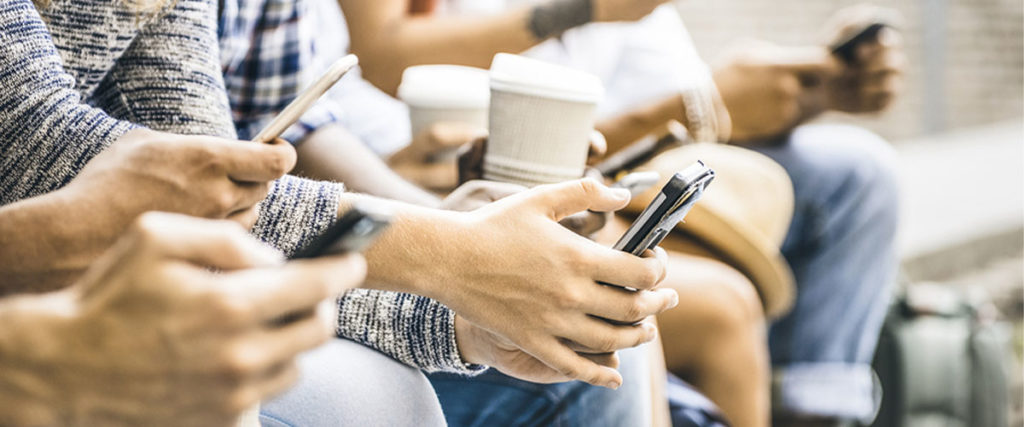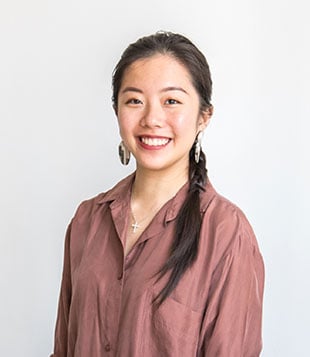Are you addicted to your smartphone? Bangkok-based wellness gurus Nathaniel Try and John Bailey, the duo behind Asia’s latest digital wellbeing initiative Digital Detox Asia, share tips on cutting down on your screen time.
It has become the norm – and one that Bangkok-based educators Nathaniel Try and John Bailey have become increasingly uneasy about – that people are glued to their phones. And it’s a habit being picked up by our children. Recent studies found that children aged 8 – 11 spend an average of 3.6 hours per day glued to a screen – nearly double the suggested limit of two hours. Alarmed by this epidemic of digital addiction, Nathaniel and John set out to counteract it with their wellness programme Digital Detox Asia. “We are here to promote the benefits of taking periodic breaks from digital technology,” explains Nathaniel, talking Hive Life through how they intend to help us regain the balance between staring at our screens and living life with simple breaks that could make all the difference.
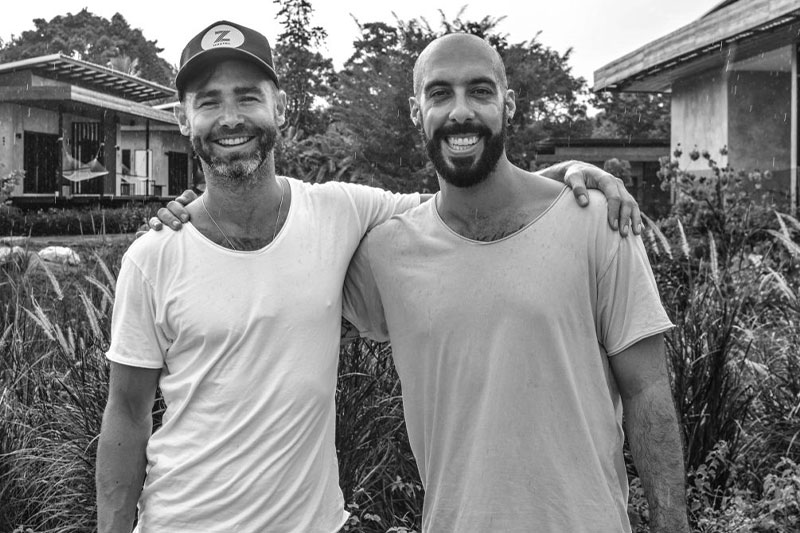
From lost productivity to attention deficits, depression to impairing sleep, there’s no lack of research on how constant digital distractions are changing our cognitive functions and influencing our mental wellbeing for the worse. Nathaniel has experienced some of these side effects himself. “Staying on the phone for a few hours replying to messages, be it business or friends – your mood changes. You become more irritable, stressed, and anxious,” he attests to a range of unintended consequences of excessive digital consumption.
How did we get so hooked in the first place? “Social media is a huge trap. It’s engineered to keep us trapped. Phones, apps, and companies are smarter. They know what will interest you. They listen to our conversations and conduct targeted advertising. Many are aware but happy to accept,” Nathaniel begins. For decades, academics have been warning us about the addictive potential of our electronics. In 2014, behavioural scientist Nir Eyal called out tech giants for preying on our psychology. But, while there has been a growing consciousness around ‘digital wellness’ in the West, leading to an emergence of screen time monitoring apps such as Moment and Flipd, the issue has not received the same attention in Asia.
According to a report published by research agency Millward Brown, Asian users clock in more screen time than those in any other region, spending up to 317 minutes (over 5 hours) a day staring at different types of screens. “There’s a lack of awareness of the danger of our dependence on social media and devices in many Asian cities we have seen,” says Nathaniel. Nowhere is this problem more evident than in Bangkok, where he and John have resided for almost a decade. “Thailand has almost nothing in terms of awareness around tech addiction,” John concludes from his observations in schools and public areas. Identifying this dire need for education around digital use, the duo founded Digital Detox Asia in 2017 as a corrective.
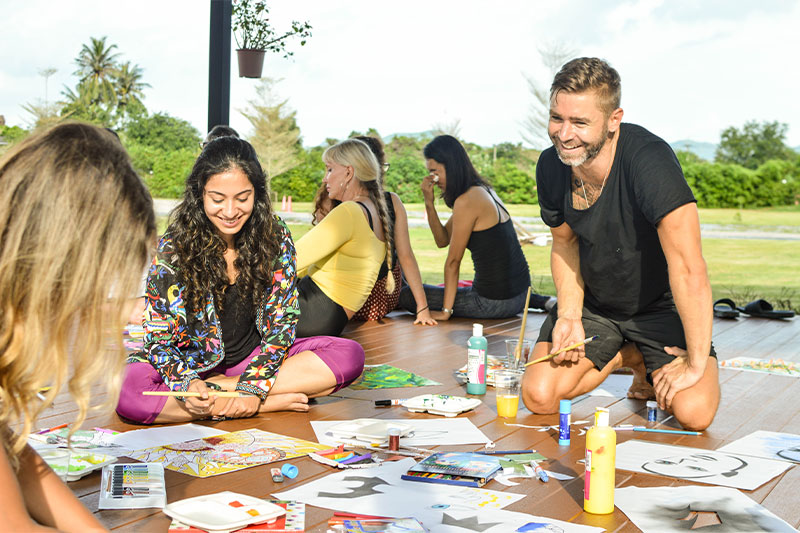
Nestled in Thailand’s picturesque Khao Yai National Preserve, Digital Detox Asia is tasked with a mission to educate people on the importance of switching off and help them manage their digital habits more effectively. Targeting both students (a.k.a digital natives) and busy workers, Digital Detox Asia hosts education sessions in local schools and on social media platforms to sound the alarm about excessive digital consumption. In addition, it organises transformative retreats from time to time, which offer its participants a plethora of offline activities, including yoga, meditation, creative sessions, and group activities “as a way of giving people an escape from the digital world.”
At its core, Digital Detox Asia wants to empower its visitors with healthy digital detox practices that they can implement in their everyday life.
The first step to cutting back on our digital dependency, as Nathaniel advises, is to “quieten notifications and alerts, or turn on the airplane mode when you’re with people, doing your daily practices, working, before bed, and at night while you sleep.” So, we get to decide when to access social media sites and networks without having to go offline all at once. When we use our devices, “be conscious,” he urges. Not only in terms of duration, but also posture. “Avoid spending too long scrolling, swiping and looking at apps and other distractions that don’t serve you positively. Also avoid hunching over, craning your neck forward, or having the screen too close to your face. Make time to move and breathe. Learn to enjoy being in the real world.”
The easiest way to steer yourself away from an Instagram or Facebook binge is by doing something else. “Incorporate practices such as yoga, meditation, and other hobbies, such as exercise, into your daily life,” says Nathaniel, speaking from his seven years of experience as a yoga and meditation guru. “Choose spaces such as bedrooms, the kitchen, and the dinner table as sanctuaries free of digital devices,” he says. As for those whose jobs rely on technology, Nathaniel stresses the importance of engaging your peers in the process. “Tell your friends not to expect replies after 6 pm. It seems daunting, but eventually, it will become easy.”
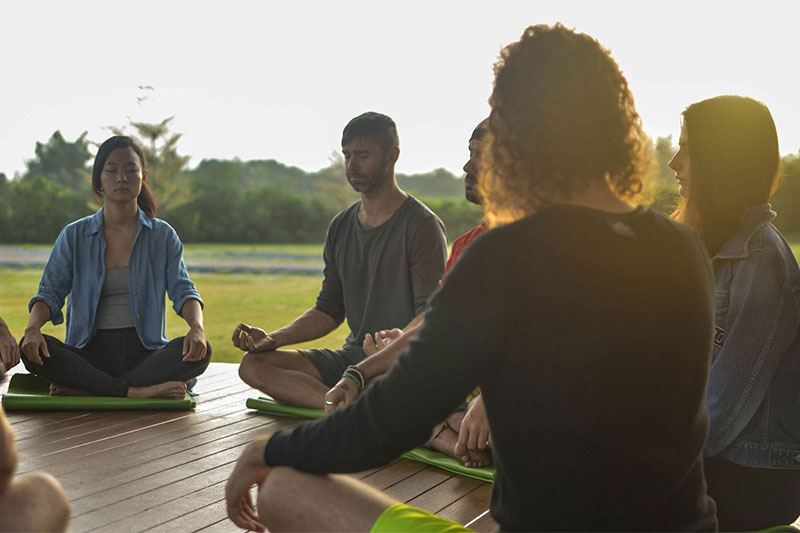
Beginning with these small breaks, we can then slowly eliminate technology from various parts of our day, making our detox easier to stick to. “I digital detox every morning, I don’t check technology until lunch. Those few hours are the best part of the day. I encourage everyone to develop a period each day that’s device free. The difference is profound,” says Nathaniel. “We are not anti-technology. Indeed, we utilize it to spread our word, but we must be aware.”
Committed to spearheading the digital wellness movement in Asia, Nathaniel and John hope to help us restore our wellbeing, one small digital break at a time. “If people are conscious of their life choices and have the will to change, then even just sticking to a positive routine, no matter how small, will have great benefit. The mental challenge of sticking to some sort of healthy practices is in itself beneficial.”
Want to be a part of this?
Digital Detox Asia will host their next retreat on May 18 – 20 at Thanyapura in Phuket, one of Asia’s top sports and wellness resorts. For more information, click here.
